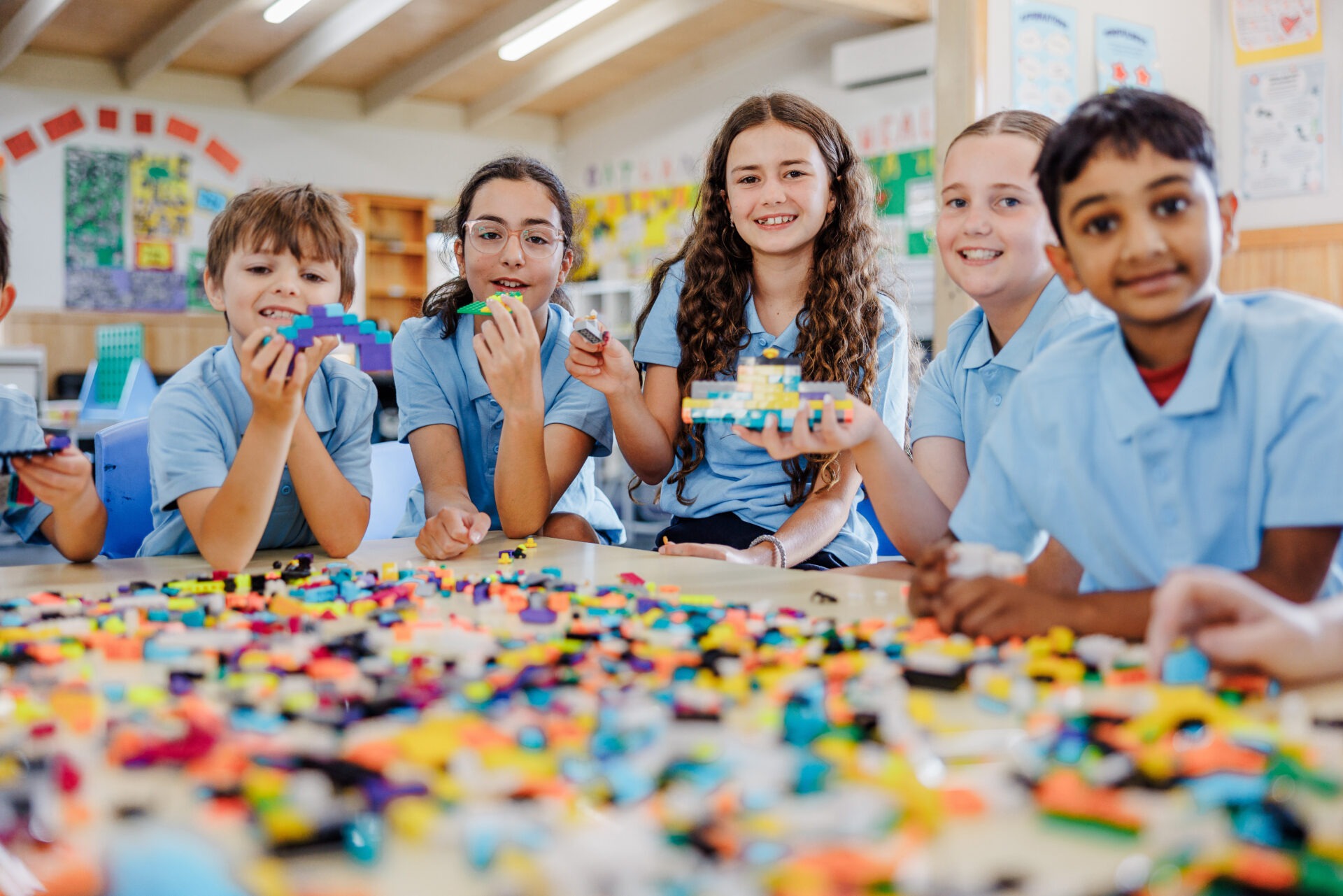As part of our Insight Series, Dr Kristy Goodwin, digital wellbeing and productivity expert, outlines the impact that technology has on us and explains how we can thrive in a digital world.
School leaders and teachers are increasingly reliant on digital technologies for their professional and personal lives. Emails, Google Classroom, Seesaw, social media, blogs and news sites are now part of the daily vernacular for most in the educational sector. An increased digital load, particularly in relation to their work demands has left many educators feeling the impacts of ‘digital fatigue’ and in some instances, ‘digital burnout’.
However, technology is an integral part of educators’ professional and personal lives. Technology is here to stay. Therefore, it’s imperative that teachers and school leaders cultivate healthy digital behaviours and norms that support, not stifle, their physical health, mental wellbeing and productivity. These digital behaviours and habits, sometimes referred to as ‘digital hygiene’, are essential life skills that educators need to develop in a professional capacity for their own practice, but also skills they need to master in order to share with their students, who are often colloquially referred to as ‘screenagers’.
There’s no denying that today’s students are spending increasing amounts of time tethered to technology, both for learning and leisure. Many educators are seeing first-hand the consequences of students’ increased leisure time that’s now dominated by devices. In my work with hundreds of schools throughout the country, I’ve heard teachers and school leaders lamenting that students’ screen time at home is having a detrimental impact on their capacity to focus and on their overall physical and psychological development. Teachers who are observing students entering school with delayed language skills (expressive and receptive language), fine motor and gross motor skill impairments and waning attentional skills. Schools are now spending an inordinate amount of pastoral care time dealing with cyberbullying issues (most of which take place outside school hours) and a range of mental health issues, which many teachers (and a growing body of research) attribute to increased time spent online.
Why are teachers and school leaders experiencing digital fatigue and digital burnout?
Many of us were issued with an email address, yet never given any explicit instruction on how to effectively and productively use email. This is part of the reason why email has become the Achilles heel for many educators (and knowledge workers in general). We’ve voraciously adopted digital technologies into our personal and professional lives, yet haven’t paused to consider how we use these technologies in ways that are congruent with our psychological and physical needs. This issue is amplified when we consider the rapid adoption of a range of digital technologies in children’s and adolescents’ lives.
1. We’re not working in alignment with our neurobiology.
We have ancient, paleolithic brains that were designed to go and forage for information, at a cadence and time that suited us. But today, information is constantly being thrust at us. Pings, dings and alerts and notifications are now the soundtrack of our days. We’re not biologically designed to deal with a deluge of digital distractions.
2. Digital technologies have impacted some of the biological buffers that helped us to focus and deal with stress: sleep and movement.
Many people are tired and wired. Our screen habits are sabotaging our sleep. Being on your phone just 60 minutes before you go to sleep will not only delay the onset of sleep, but it will shorten your deep and REM phases of sleep. We cannot focus when we’re tired and our stress levels also increase. The prefrontal cortex which is the part of the brain that makes good decisions and is our working memory is impaired when we’re tired. Simple digital wellbeing habits such as establishing a digital curfew or wearing blue light-blocking glasses to minimise the impact of screens on your sleep can help to optimise both educators’ and students’ sleep.
Data confirms that adults and children are also more sedentary than we’ve ever been throughout history due to increased time spent with digital devices. When we move, we make serotonin, dopamine, endocannabinoids and norepinephrine which are neurochemicals to help us to focus and moderate our stress response. Increasing incidental movement and adding micro-movement breaks between lessons can improve students’ and teachers’ capacity to focus and their mood.
3. Technology has added stressors that work against our focus and wellbeing.
Our digital load has increased during the pandemic. Microsoft released data from their Work Trend Index 2021 that revealed that 40.6 billion more emails were delivered in February 2021, than in February 2020, there was a 148% increase in weekly meetings and 45% in team chats, 42% of which were taking place outside traditional work hours. To cope with this constant digital bombardment, many of us (educators and students alike) revert to multitasking.
Research conclusively tells us that we cannot multitask. We intuitively know that when we need to focus, we need to eliminate as many distractions as possible. This is why when we’re driving to a new destination, most of us will instinctively turn down the volume on the music or radio that’s playing. When we think we’re multitasking we’re actually engaging in something called ‘continuous partial attention’, or task switching. This is taxing for our brain. Yet this digital habit has become the norm for both teachers and students alike. Teachers who are in staff meetings, or school assemblies and attempting to simultaneously triage their inbox, reply to student messages, or mark online work.
Research confirms most of us are now multitasking during video calls which have become increasingly more common during the pandemic, resulting in ‘Zoom fatigue’. When we multitask, we burn through glucose, the brain’s energy supply and release cortisol, the stress hormone, which is why many of us are feeling digitally depleted after a day of back-to-back video calls. We’re not working in alignment with our neurobiology because we’re attempting to multitask. Research also confirms that our IQ drops by an average of 15 points when we multitask and it takes us 40% longer to complete the tasks, compared to if we’d mono-tasked. Again, the skill of focused attention, or monotasking is vital for educators as much as it is for today’s students.
4. We also easily succumb to digital distractions because of some of the persuasive design techniques tech companies use to divert our attention.
There is a myriad of clever tactics that tech companies deploy to hijack and hold our attention, both with the technologies we use in our personal and professional lives. Ex-Google Design Ethicist, Tristan Harris has proposed that we’re now living in the attention economy. For example, notification bubbles are usually red, as red is a psychological trigger to indicate urgency and danger. Would you feel compelled to check your WhatsApp or email notifications if they were baby pink or sky blue? The use of metrics, your email icon declaring that you have 77 unread emails triggers a sense of urgency.
It is evident that many of us are using digital technologies in ways that are not congruent with our brains and bodies. Given that technology plays a critical role in our lives means that we must be more intentional about developing digital norms and behaviours that work in tandem with our brains and bodies and not against them. This is why it’s paramount that schools provide professional development and student learning programs that address digital wellbeing and digital focus: two of the most vital life skills that we all need to cultivate to thrive in the digital world.

Dr Kristy Goodwin is an award-winning researcher, speaker, author, and mum on a mission to help parents and educators raise happy, healthy children and teens who thrive online and offline. As a researcher and educator herself, she’s spent most of her professional career researching and speaking about the ways in which technology shapes children’s and teens’ wellbeing, health, and learning. She provides research-based but realistic advice and strategies to teachers and parents on how they can teach their children to use technology in productive and purposeful ways without reverting to phone bans or constant digital detoxes.
She authored the book Raising Your Child in a Digital World and has conducted numerous evaluations and research studies for the New South Wales Department of Education and Communities. Prior to becoming a speaker and consultant, she worked as an educator for 14 years with schools in both the public and private sectors. She also lectured at Macquarie University and University of Notre Dame and has completed a PhD on the impact of digital technologies.





